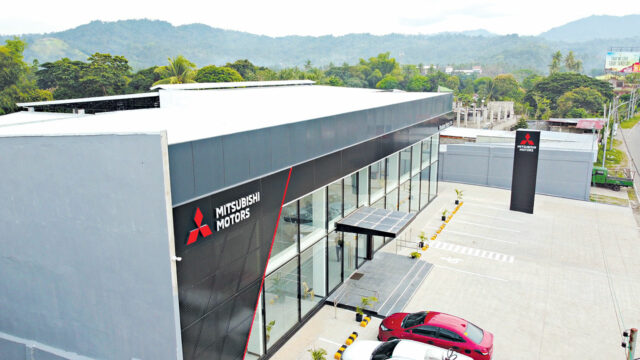Living our independence with unity, vigilance, and resolve

Every June 12, we celebrate the day we stood before the world and claimed our place as an independent, self-governing nation. It’s a moment in history where we declared who we are — proud, free, and determined to shape our own future. Independence is not just something we remember — it’s something we live. It’s the legacy we inherit and the responsibility we carry forward.
One hundred and twenty-seven years on, we have come a long way from the struggles of a post-colonial, Third World country. We’ve grown into a dynamic, developing economy — resilient, resourceful, and full of promise. Our people have built, rebuilt, and pushed forward through every crisis and setback. But with each step towards progress comes new challenges. Now, our independence is tested not by straightforward conquest, but by Beijing’s incursions into our territory, disinformation campaigns, and the exploitation of our natural resources. These are clear and present threats — and we must meet them with the same courage and clarity our forebears showed.
Our marine diversity situation is beset with numerous mounting threats — for instance, plastic pollution and illegal, unreported, unregulated fishing. The Philippine Statistics Authority reported, as of October 2024, that the fish catch in the West Philippine Sea dropped 6.78% during the first half of that year, falling to 101,039.54 metric tons from 108,392.48 metric tons in the same period in 2023.
According to the Bureau of Fisheries and Aquatic Resources (BFAR), the decline has been linked to the incursions of foreign vessels (notably Chinese) that intimidate Filipino fisherfolk and limit their access to their traditional fishing grounds.
Further, the BFAR has confirmed incidents of foreign fishers using damaging practices, specifically cyanide fishing, in critical ecosystems like Bajo de Masinloc (Scarborough Shoal). This practice not only poisons marine life but causes long-term damage to the coral reefs, which serve as vital spawning and nursery habitats for fish. According to the BFAR, the use of cyanide by Chinese fishers constitutes a violation of international agreements, including the United Nations Convention on the Law of the Sea (UNCLOS).
Worse, weak enforcement of environmental laws also hinders efforts toward marine protection and conservation. According to the University of the Philippines-Marine Science Institute (UP-MSI), China has destroyed at least 21,000 acres of coral reefs in the West Philippine Sea.
The Philippine Coast Guard (PCG) and UP-MSI have documented significant coral reef destruction in areas like Rozul Reef and Escoda Shoal, attributing the damage to activities by Chinese maritime militia vessels. Underwater surveys revealed lifeless marine ecosystems with crushed corals, suggesting deliberate human-induced degradation.
Remember, these are only the cases that have been documented. There are plenty more.
In a recent forum hosted by Stratbase Institute, held in partnership with the French Embassy, Environment and Natural Resources Undersecretary Carlos Primo David said it is difficult to monitor an area when there are issues of access. His remarks underscore the urgent need for unimpeded access to these marine areas to accurately assess the full scale of environmental destruction — and to hold those responsible accountable.
Indeed, the illegal entry of foreign vessels into Philippine waters has emerged as a critical threat, causing extensive habitat destruction and an alarming depletion of marine resources. The Permanent Court of Arbitration decided in favor of the Philippines in 2016, emphasizing the supremacy of the international rules-based order. The ruling invalidated China’s nine-dash line claim, holding them accountable for environmental violations under UNCLOS.
Viewed from this perspective, independence is not just a persistent struggle but a continuing duty among Filipinos. To attain independence is to ensure that our fisherfolk can freely and safely fish in the waters that have sustained generations of Filipino families. To be independent means to be able to harness and manage its own marine resources — rich in biodiversity and economic value — without interference or intimidation. It means being able to protect our environment, ensure food security, and uphold the dignity of our people.
At the end of 2024, Pulse Asia conducted a survey that asked Filipinos what measures must be prioritized to strengthen the country’s defense in the West Philippine Sea. One of the top responses was to support the modernization of the Armed Forces of the Philippines (AFP). This reflects strong public awareness that protecting our marine territory, especially within our exclusive economic zone, requires not only presence — but capability. It is encouraging that the Marcos Jr. administration has shown strong support in this direction — by increasing the defense budget, accelerating military modernization programs, and deepening security partnerships with like-minded countries.
There is no dearth of countries who share our values and commitment to peace and stability.
In this regard, the achievement of independence as well as stability in the Indo-Pacific is best achieved with strategic partners.
For example, the coast guard has strengthened its maritime and coastal security patrols. Commodore May Marfil reported that by the end of 2024, the PCG had seized or apprehended 193 vessels engaged in illegal, unreported, and unregulated fishing. Its enhanced capabilities were made possible by an increase in personnel and maritime assets — several of which were provided through cooperation with the French government.
According to French Ambassador Marie Fontanel, the upcoming UN Ocean Conference is a great opportunity to rally action for ocean sustainability. The Philippines looks forward to participating here alongside its like-minded friends. We must ensure that commitments translate into meaningful outcomes — especially in upholding maritime rights and protecting marine biodiversity.
Sustaining and strengthening our independence is the challenge of our time. As our nation progresses — breaking beyond the perimeters of a developing economy and asserting our standing in a rapidly changing world — we are called to protect the gains we’ve made and secure the future we are building. That means standing firm against threats to our sovereignty, defending our resources, empowering our people, and working alongside partners who share our values of peace, justice, and respect for international law. Independence is a living responsibility of every citizen, carried forward through unity, vigilance, and our unwavering commitment to shape our destiny on our own terms.
Victor Andres “Dindo” C. Manhit is the president of the Stratbase ADR Institute.











